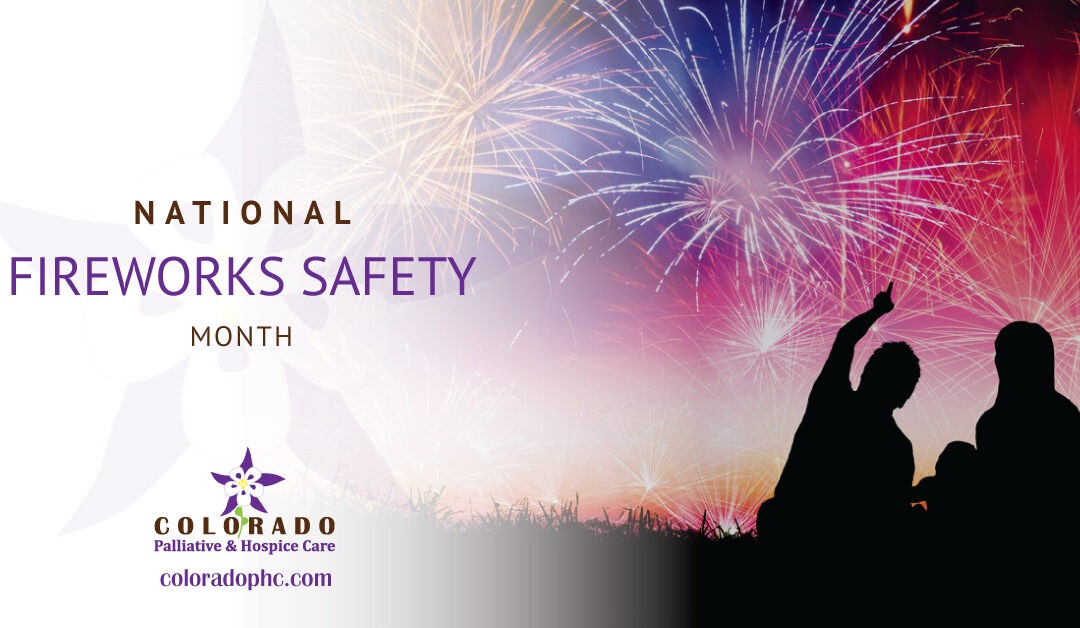Although fireworks are a sign of celebration and a familiar sight during the summer months — Memorial Day through July Fourth, what you may not realize is that fireworks can alarm your loved ones with dementia and Alzheimer’s Disease. This Fireworks Safety Month, we wanted to take some time to talk about fireworks safety for one of our most vulnerable populations — people in hospice or palliative care.
The Problem with Fireworks
People who have certain types of dementia, such as Alzheimer’s, are prone to becoming confused about why their typically quiet evenings are ablaze with frightening loud sounds and flares. Community fireworks displays are most common at night, long after most seniors have already gone to bed, and unexpected noises can wake them up, leaving them nervous or stressed and unable to return to bed.
Nighttime fireworks can aggravate sundowner’s — a condition in which some people with dementia become agitated and aggressive, typically in the evening before bed and especially when their routine is disrupted.
How Caregivers Can Help
Fireworks season is planned. Know exactly when the 4th of July is every year, allowing caregivers, hospice providers, and family members ample time to prepare their loved ones, or at the very least, figure out ways to distract them.
- Take a trip — If your loved one’s hospice or palliative care facility or home is in an area that has a lot of firework activity, use the occasion as an excuse for a road trip or short drive. We recommend making a day of it and enjoying the afternoon at your destination. Time the drive back to be in the car during the height of the fireworks. You could also plan an overnight stay in a quiet area if conducive with your loved one’s medical needs.
- Watch the show from your car — If traveling far is not an option, why not take a quick drive and watch the fireworks from your car? Turn up the radio to help muffle the fireworks’ bangs and let your passengers enjoy the visuals without jarring sound effects.
- Create a safe space — Find easy solutions to keep your loved ones from becoming stressed at home or their hospice facility. Put on mellow music (bonus if they are willing to wear headphones), create a temporary sound barrier by hanging sheets over the windows, and ensure all windows and doors are closed. We recommend using a white noise or other sound machines that will play soothing beach or nature sounds.
- Talk to your loved one’s provider, case manager, or nurses as they are likely familiar with tried and tested options for keeping dementia patients calm during fireworks.
Overall, a little extra patience, preparation, and flexibility will help create a peaceful fireworks season.

